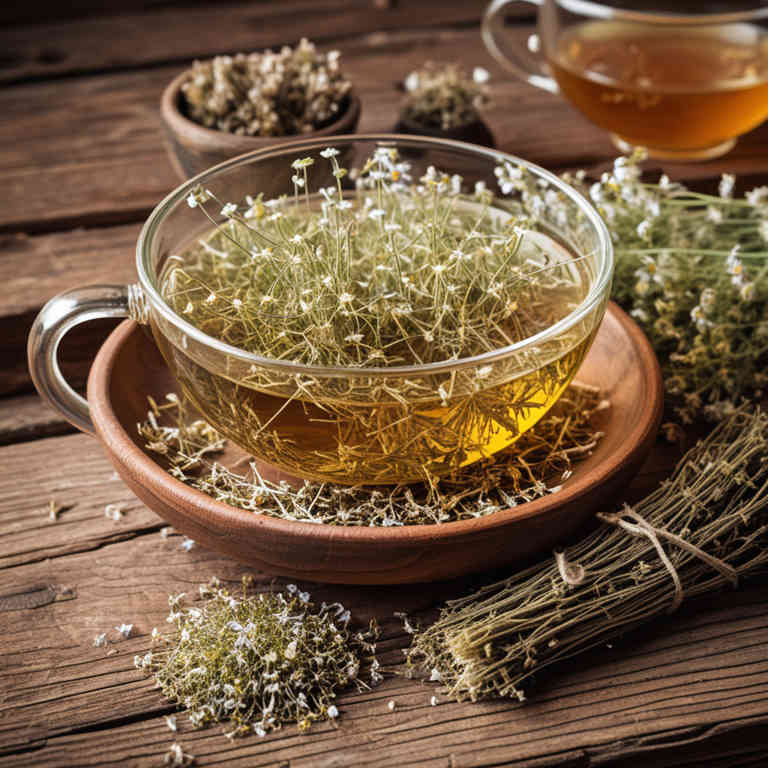Euphrasia officinalis tea for medicinal use

Euphrasia officinalis tea is a herbal preparation made from the dried leaves and flowers of the greater eyebright plant.
It has been traditionally used in herbalism to support eye health and alleviate symptoms of eye strain, redness, and irritation. This tea is often consumed as a calming infusion to promote overall wellness and soothe the nervous system. Its mild, earthy flavor makes it a popular choice for those seeking natural remedies for minor ailments.
In herbal practice, it is also used to support the immune system and reduce inflammation.
Uses
Euphrasia officinalis tea has been used to treat eye-related ailments for centuries, with historical roots tracing back to ancient Greece and Rome.
Traditionally, it was valued for its soothing properties and was often used to alleviate symptoms of eye fatigue, redness, and irritation. In modern times, it is still used as a herbal remedy for similar purposes, and it is also believed to support overall eye health. The tea is typically prepared by steeping the dried herb in hot water, and it is often consumed as a calming infusion.
Its continued use highlights the enduring relevance of traditional herbal medicine in contemporary wellness practices.
Benefits
Euphrasia officinalis tea has health benefits such as reducing eye strain, improving vision, and supporting immune function.
It is often used to alleviate symptoms of conjunctivitis and other eye irritations due to its anti-inflammatory properties. This herbal tea may also help with respiratory issues like coughs and sore throats. Additionally, it is believed to have mild diuretic effects and can support overall wellness.
Euphrasia officinalis tea is typically made from the dried leaves and flowers of the plant and is consumed as a calming, soothing beverage.
Constituents
Euphrasia officinalis tea active constituents include flavonoids, tannins, mucilage, and iridoids.
These compounds contribute to its traditional use in supporting eye health and reducing inflammation. Flavonoids act as antioxidants, helping to protect cells from oxidative stress. Tannins have astringent properties that may soothe irritated tissues.
Mucilage provides a soothing effect, making it beneficial for conditions like conjunctivitis or sore throat.
Preparation
To make Euphrasia officinalis tea, start by gathering fresh or dried Euphrasia officinalis leaves and flowers.
Rinse the herbs gently under running water to remove any impurities. Place the herbs in a heatproof container and pour boiling water over them, ensuring they are fully submerged. Let the mixture steep for 10 to 15 minutes to allow the beneficial compounds to infuse into the water.
Strain the tea into a cup and enjoy it warm, optionally adding a small amount of honey or lemon for flavor.
Side Effects
Euphrasia officinalis tea may lead to mild gastrointestinal discomfort, such as nausea or upset stomach, especially when consumed in large quantities.
It can also cause allergic reactions in individuals sensitive to plants in the Scrophulariaceae family. Prolonged use may result in dependency or reduced effectiveness of the herb over time. In rare cases, it might interact with medications, particularly those affecting the eyes or nervous system.
It is important to consult a healthcare professional before using this tea, especially for those with pre-existing medical conditions.